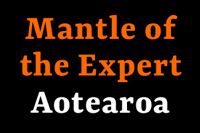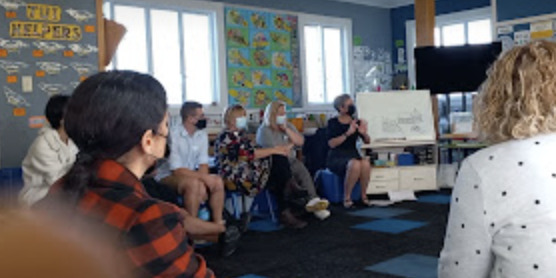I really enjoyed co-presenting with Claire Edwards at the Puketāpapa Kahui Ako gathering at Dominion Road school in Auckland recently. The focus of the day was on the new Aotearoa New Zealand Histories curriculum, and Claire and I took the opportunity to model how frame distance could be used to explore a story from local history from a range of perspectives.
Our starting point was a newspaper account of a dramatic event that happened just down the road from the school in 1872. By the end of the half-day workshop everyone was really engaged with the content … so much so, we hardly had time to discuss the way we’d used DI to teach it!
I wrote up the planning for the workshop in detail, with an explanation of each step for participants. And I thought other teachers might be interested too. Hope you find it useful … You could teach the plan as is (the story of the Cyrus Hayley affair is absolutely fascinating as a window into New Zealand society at the time). Or you could adapt the steps to explore a story from your own locality. I hope you’ll leave a comment, or get in touch to let me know what you create.
One thing to notice is how the planning deliberately avoids inviting participants to step into the shoes of historical characters. Strategies and conventions like “hotseating” and “teacher in role” may not be appropriate where real historical figures are involved. Instead, we can use frame distance to take roles as people with different viewpoints on the event. This allows us to explore the way different perspectives on an historic event change the way it is perceived. I’m encouraging all the teachers I work with to consider frame distance when teaching local histories. More on this in future posts…
Please note the curriculum links at the start of the document, including the comments about the importance of mana whenua engagement.
Thanks to Claire Edwards for finding the amazing source material about Cyrus Haley and for co-planning and co-presenting – it was great for the teachers to hear from a colleague about the impact DI has had in your school. Thanks also to Vivien Smith for taking video and photo record of the workshop, to Cat Rowlings for coming across town to attend, to participants for choosing the workshop from so many others they could have selected, and to Mike O’Reilly for his invitation to be part of the day.
As with all planning offered freely on this site, these resources belong to the original authors and are not to be on-sold for profit nor distributed in any other form.

